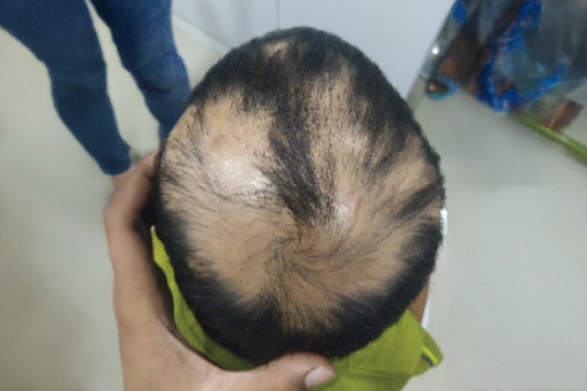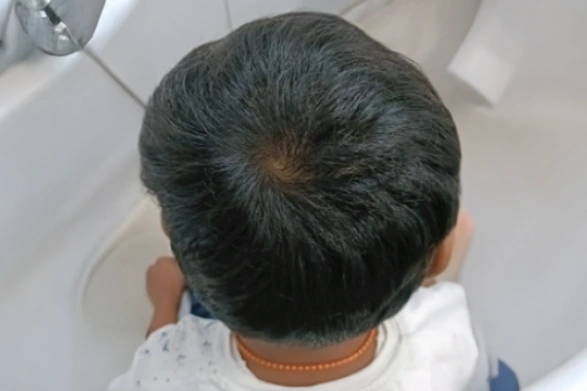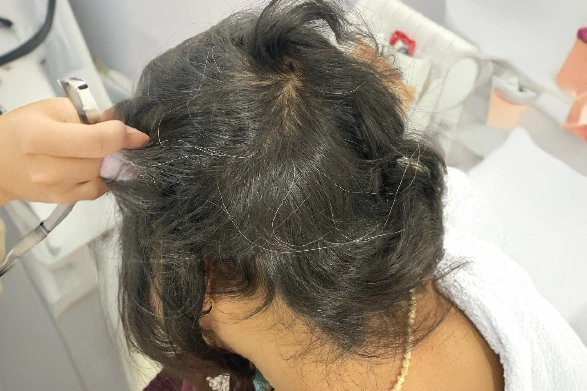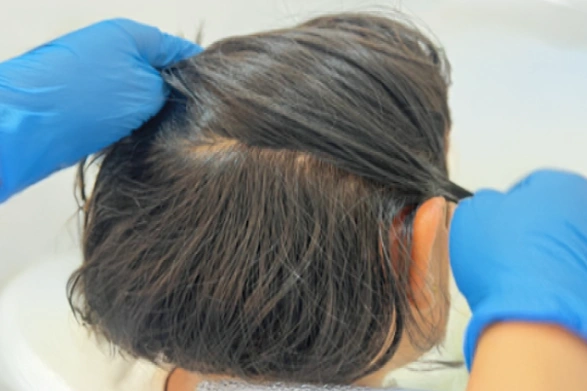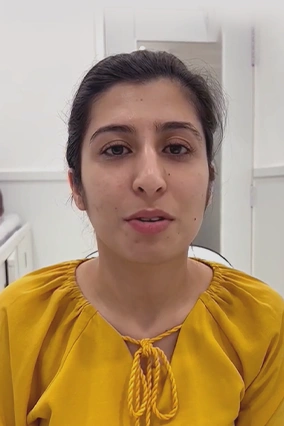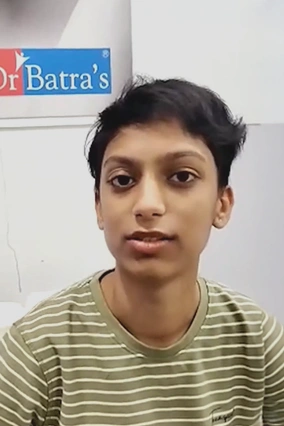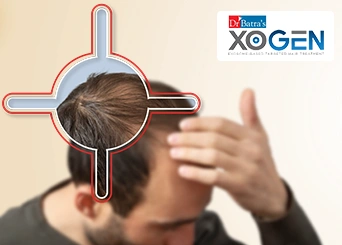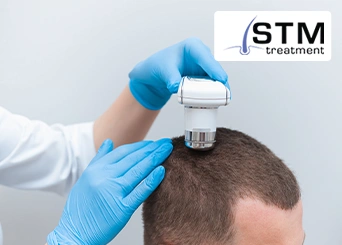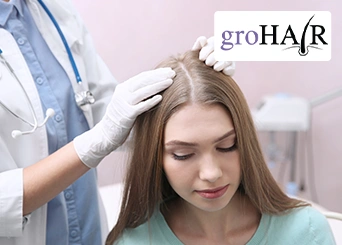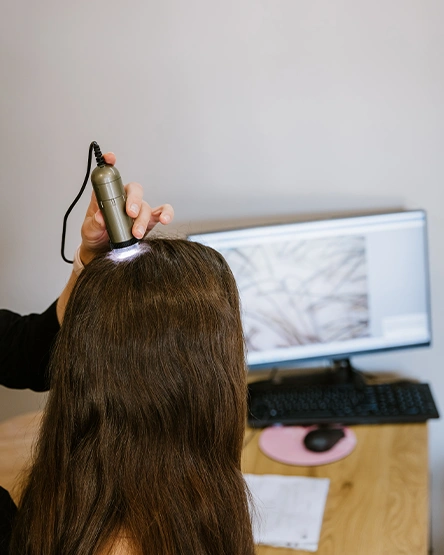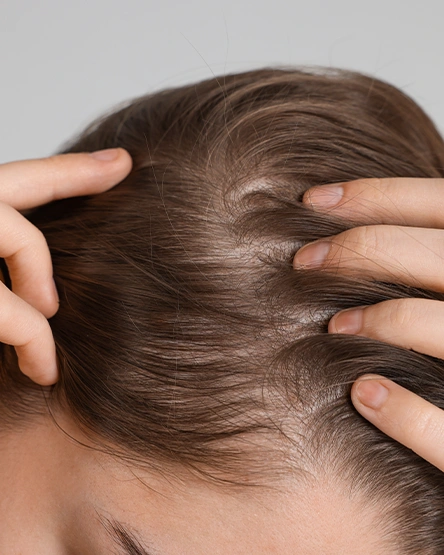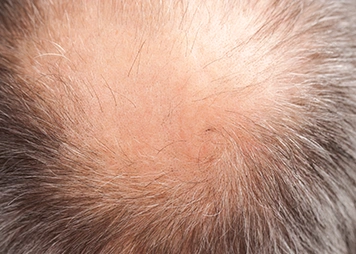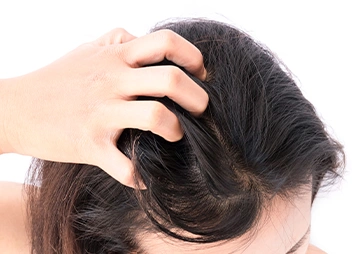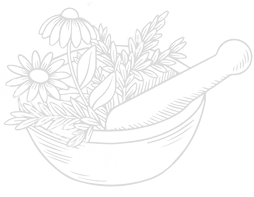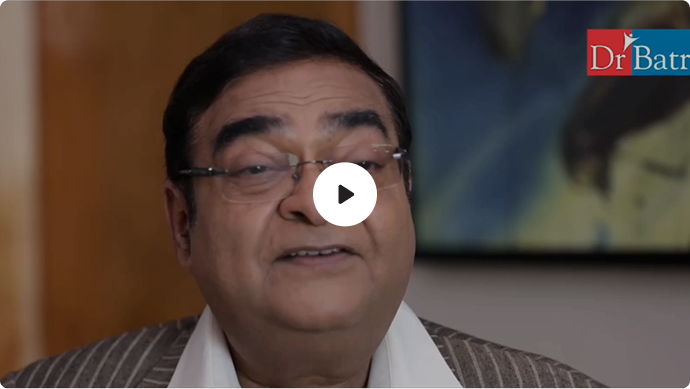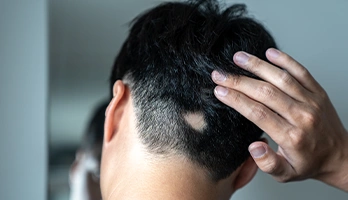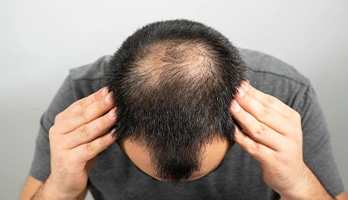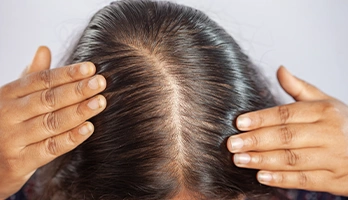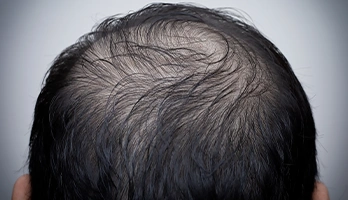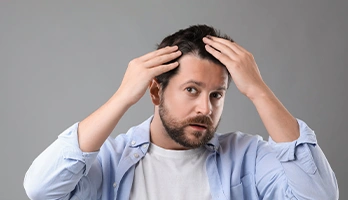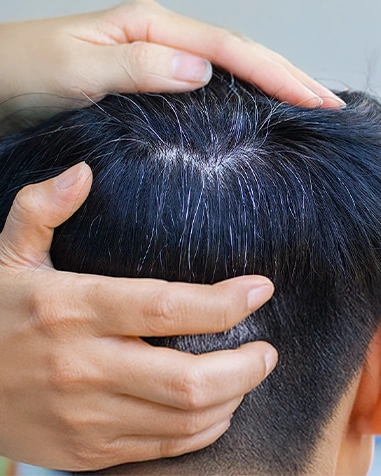✓ 40+ Years of Proven Expertise
We have successfully treated millions globally. Our alopecia areata homeopathic treatment has been refined over decades of clinical practice, combining traditional homeopathy with modern diagnostic insights.
✓ Root-Cause Treatment, Not Symptom Suppression
Unlike temporary solutions, our approach addresses underlying triggers such as immune imbalance, genetics, stress, nutritional deficiencies, and hormonal changes. This ensures long-term results and healthy scalp maintenance.
✓ Comprehensive Scalp Analysis & AI-Powered Personalisation
The AI magnification (300×) allows assessment of follicles, patch patterns, and scalp health. Our doctors customise your alopecia hair treatment plan according to your condition.
✓ Safe, non-surgical and clinically backed care
Our homeopathic medicines are safe, natural and free from any harsh chemicals. They promote regrowth and also strengthen the hair roots.
✓ Proven Outcomes & Success Stories
Thousands of patients have seen visible regrowth, improved patch coverage, and reduced recurrence with our alopecia hair loss treatment.
✓ 350+ Specialists Across 200+ Clinics
Our team includes BHMS, MD (Hom.), dermatologists, and trichologists, providing expert care and second opinions to optimise your treatment plan.
*All treatments are offered across 200+ clinics in India, Bangladesh, the UK, Malaysia, Thailand, Bahrain, and the UAE.



